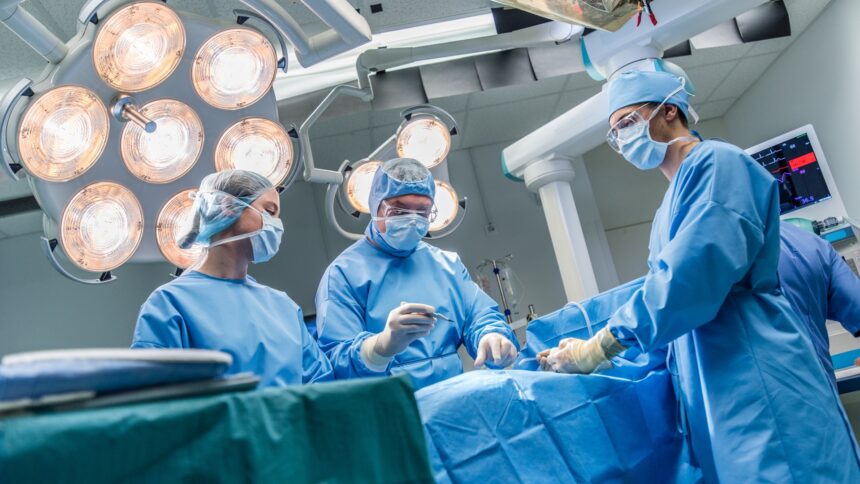General surgeons are medical doctors with specialized training in the diagnosis and surgical treatment of a wide range of conditions affecting various parts of the body. These surgeons are skilled in comprehensive patient care, including pre-operative, operative, and post-operative management, and their practice is characterized by a broad scope of knowledge and technical skill. Here’s more information on general surgeons and what they specialize in:
Gastrointestinal Surgery
Gastrointestinal (GI) surgery encompasses a wide variety of procedures on the organs of the digestive tract. This includes the esophagus, stomach, small intestine, biliary system, pancreas, and liver. General surgeons address a range of issues within these complex systems.
A person might undergo GI surgery for several reasons, like to address an obstruction that blocks the passage of food or to manage internal bleeding. GI surgeries can also remove benign or malignant growths and commonly serve as both diagnostic and therapeutic tools. Some other GI surgeries a general surgeon may perform include:
- Cholecystectomy
- Appendectomy
- Colorectal Surgeries
Hernia Surgery
A hernia occurs when an organ or fatty tissue pushes through a weak spot in a surrounding muscle or connective tissue. Some common symptoms that may indicate a hernia include:
- Bulging or a noticable lump in the abdomen or groin
- Feelings of weakness or pressure in the affected area
- Burning or aching sensations at the site of the bulge
- Coughing or movement causing pain
General surgeons are extensively trained in repairing hernias, and they can use minimally invasive techniques like laparoscopy to correct them. The recommended surgical approach depends on the specific circumstances of the hernia and the patient’s overall health.
Colon Surgery
Colon surgery involves procedures performed on the large intestine to treat various diseases and conditions, and these surgeries are also a primary method for evaluating and treating malignancies. General surgeons perform several types of colon operations using robotic-assisted minimally invasive techniques. Surgeons perform surgeries like segmental resections, where a part of the colon is removed, or total and partial colectomies, which involve removing the entire or a larger portion of the colon. Other reasons for colon surgery include the presence of precancerous polyps, diverticular disease, or intestinal obstruction.
Breast Surgery
General surgeons play a significant role in the diagnosis and surgical management of breast conditions, both benign and malignant. Common procedures include a lumpectomy, where only the tumor and a small margin of surrounding healthy tissue are removed. Another procedure is a mastectomy, which is the removal of the entire breast.
During these surgeries, a sentinel lymph node evaluation may be performed to determine if cancer has spread beyond the breast. General surgeons often work closely with plastic surgeons to coordinate breast reconstruction following a mastectomy or other breast procedures. These operations are performed for both diagnostic purposes, like obtaining tissue for a biopsy, and for therapeutic treatment.
Learn More About General Surgeons
General surgery is a diverse and fundamental surgical specialty focused on a wide array of common and complex health issues. Surgeons in this field possess the knowledge to manage conditions affecting multiple organ systems. Understanding the scope of their work can provide clarity for individuals navigating the healthcare system for surgical consultations and treatment. Contact a general surgeon for more information on their services.





